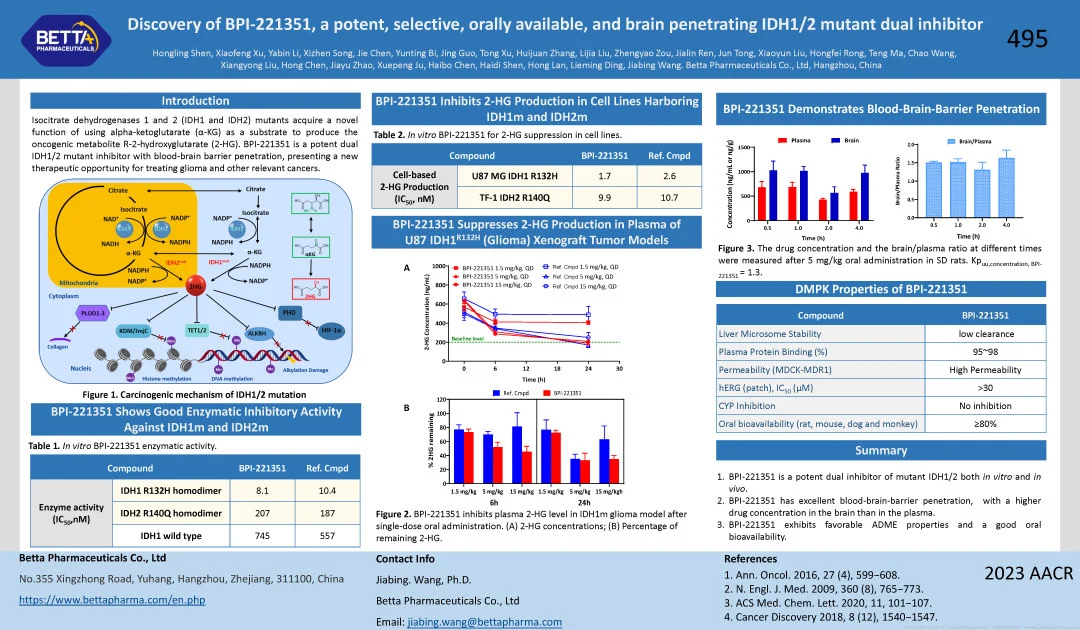China CDE has accepted the IND application for BPI-221351, an IDH1/2 inhibitor developed by Betta Pharma. BPI-221351 is potentially developed specifically for patients with glioma.
As reported, BPI-221351 demonstrates excellent blood-brain-barrier penetration, resulting in a higher drug concentration in the brain compared to the plasma. In an IDH-mutant xenograft model, BPI-221351 reduced 2-HG to baseline level up to 24 h after a single oral dose administration.
In 2022, Betta Pharma applied for a patent (WO/2023/174235) claiming an IDH1/2 inhibitor for use in glioma. The reference compound is Vorasidenib (AG-881), an orally administered brain-penetration inhibitor. In August 2023, Servier reported the results of the phase 3 trial of Vorasidenib in patients with residual or recurrent grade 2 IDH-mutant glioma. "Progression-free survival was significantly improved in the vorasidenib group as compared with the placebo group (median progression-free survival, 27.7 months vs. 11.1 months; hazard ratio for disease progression or death, 0.39; 95% confidence interval [CI], 0.27 to 0.56; P<0.001)."
Isocitrate dehydrogenase (IDH) inhibitors, including Enasidenib (IDH2, 2017), Ivosidenib (IDH1, 2018), and Olutasidenib (IDH1, 2022), were approved for use in acute myeloid leukemia (AML). Mutations in IDH1 or IDH2 are present in approximately 20% of AML patients. In the previous year, the FDA expanded the indications of Ivosidenib to include IDH1-mutated relapsed or refractory myelodysplastic syndromes (MDS in the United States.

Comments